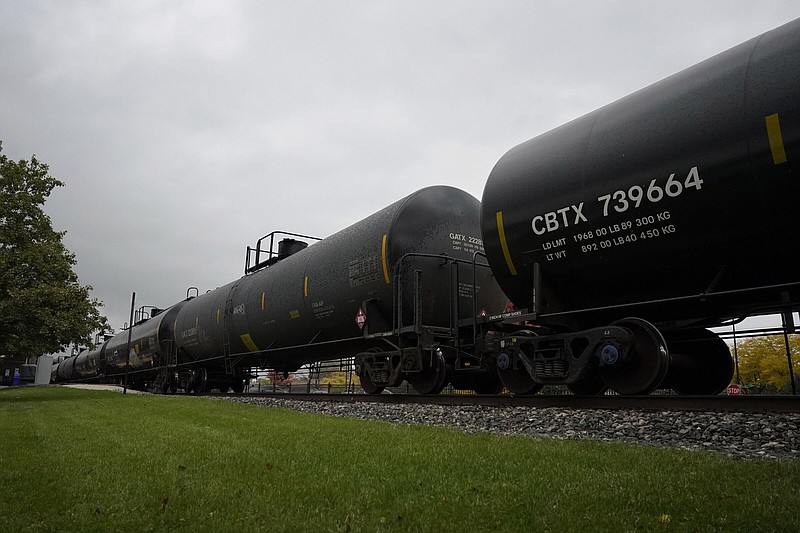The major freight railroads appear unwilling to give union track maintenance workers much more than they received in the contract the union rejected last week.
The railroads issued a statement late Wednesday rejecting the Brotherhood of Maintenance of Way Employes Division union's latest request to add paid sick time to the 24% raises and $5,000 in bonuses initially received in negotiating a new five-year deal.
Union Pacific CEO Lance Fritz said Thursday that he thinks the union -- one of a dozen that need to approve new contracts to avoid a national rail strike -- largely rejected its contract last week because details of improved expense reimbursements were still being negotiated.
So far, six of the 12 unions, representing 115,000 workers nationwide, have approved tentative agreements with the railroads. The unions have agreed to put on hold any strike until at least mid-November while the six remaining unions, including the two largest representing engineers and conductors, approve their respective deals.
"Ultimately, I remain confident that we're going to get our temporary agreements ratified and be able to avoid a strike," Fritz told Union Pacific investors after his railroad released its third-quarter earnings report Thursday.
"That's still a possibility, but I don't think it's a probability," he said.
The group that negotiates on behalf of the major railroads -- including Union Pacific, BNSF, Norfolk Southern, CSX and Kansas City Southern -- said the new contracts should closely follow recommendations of a special board of arbitrators that President Joe Biden appointed this past summer.
The railroads said that group rejected the demands for paid sick time. Officials at the Brotherhood of Maintenance of Way Employes Division didn't immediately respond to the railroads Thursday.
Concerns about quality of life and the ability for workers -- particularly the engineers and conductors who drive the trains -- to take time off without being penalized have weighed heavily on the negotiations.
But the railroads say workers do have significant short-term disability benefits that kick in after four or seven days and last up to 52 weeks that the unions have negotiated for over the years.
The railroads said the unions have repeatedly agreed that short-term absences would be unpaid in favor of higher wages and more generous benefits for long-term illnesses. If both sides can't agree on contracts, Congress could step in to block a strike and impose terms on the workers.
